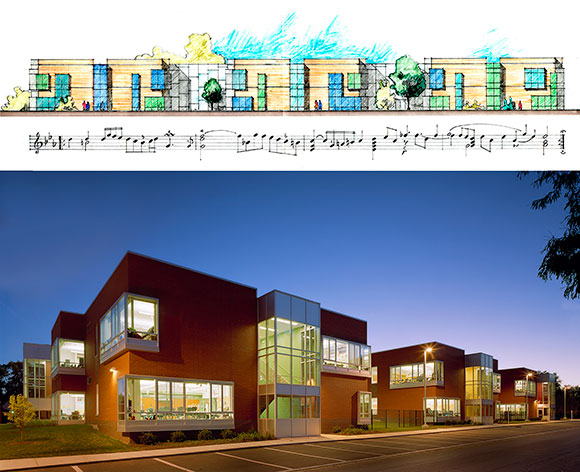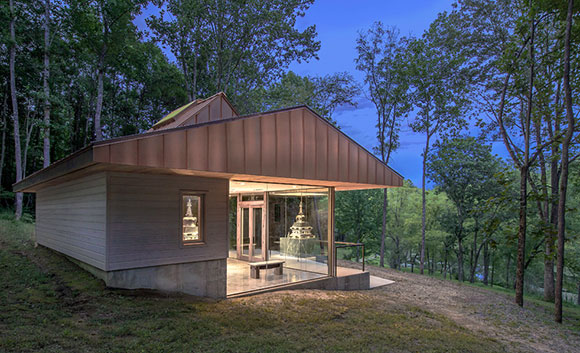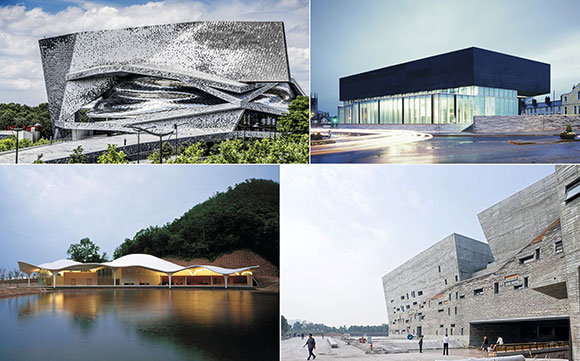#136: GENERALISTS VS. SPECIALISTS: WHO SUCCEEDS?

The musical notations that inspired the north façade of the Greenman Elementary School, Aurora, Illinois, by Anthony Poon with A4E, design architect, and Cordogan Clark, Architect-of-Record (photo by Mark Ballogg, music art by Anthony Poon)
Ask someone, “Hey, what kind of music do you like?” You will likely hear in response, “I like all kinds.”
Why do people hesitate to list specific music? Why do they want to represent having broad and general interests, when typically, the range of personal taste in music is narrow?
Personally, I don’t like “all kinds.” I don’t listen to country western, reggae fusion, and late 17th century arias? And I bet there are dozens of genres that you don’t like either when you state ironically, “I like all kinds.”
In architecture, there are generalists and specialists.

Self-explanatory, generalists design all kinds of buildings, and specialists focus on specific types, such as residential or commercial—maybe hospitals, parking structures, schools, or fire stations. Building types aside, an architect can also specialize in a type of service, i.e., historical restoration, earthquake upgrades, or forensic investigations. The latter is kind of like a detective trying to solve a water leak in the roof or cracks in the foundation.

An architect who focuses on a limited area, say sacred buildings, can create a strong marketing platform. When the architect is known as an expert, religious clients will seek out such proficiency and depth of resume. But if a client is looking to design a winery, the religious architect will probably not be under consideration.
A specialist possesses many operational advantages, such as niche knowledge, library of standard details, and relevant references and contacts. Business wise, proficiency offers efficiency resulting in profits. Though the brand is highly marketable, the architect has to beware of being formulaic or worse, a cookie cutter designer.

Mainstream marketplace easily recognizes a specialized expertise, but the higher echelons of our industry celebrate generalists. In school, we are taught to design, to be creative, to problem solve regardless of the type of building. My schooling provided opportunities to design every type of structure from a bookstore to townhouses, boathouse to a school, city hall to a church.

In the profession, we are supposed to know how to design everything that comes our way. Though a new project type might be a slight struggle in learning new things, like the sightlines of a basketball arena or the kitchen layout of a restaurant , it is the challenge that makes it worthwhile. To the client, a generalists offers fresh thinking, the opposite of predictable ideas from predictable catalogs of a specialists.
Sure, it is easier to sell “I specialize in theaters” vs. “I specialize in design.” But take for example any top name architect in our industry, any AIA Gold Medalists or Pritzker Prize laureate. Such celebrated individuals are rarely thought of as a shopping center expert or fitness center specialists. No, such generalists are thought of as designers, where their talents are not limited by a specific building type. No, these creative artists can design anything, and raise the bar much higher than those doing the same thing over and over.


